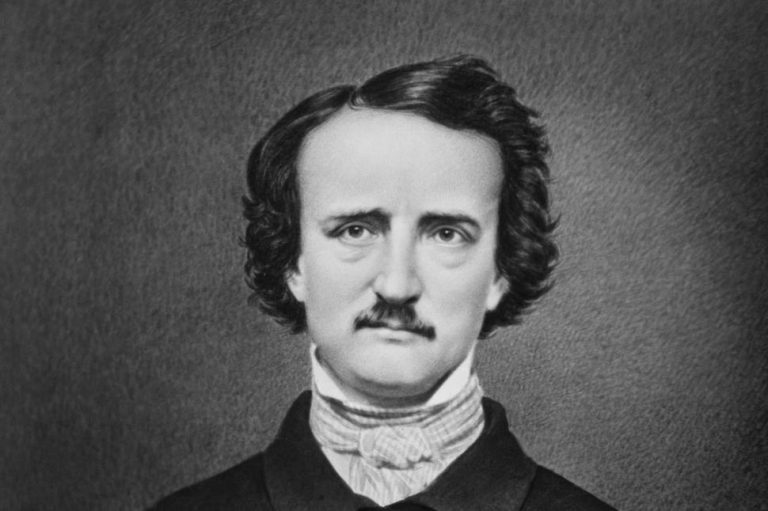Did Edgar Allen Poe plagiarize when he wrote his most famous poem?

One hundred and seventy-five years ago this year, Edgar Allen Poe published one of the most famous and familiar poems ever written.
“The Raven” made Poe famous in his lifetime, and literary critics still debate the content of the poem. Jennifer Wollock, professor in the Department of English, is one such critic. In her recently published paper, “A Game of Crows,” she researches a surprising issue arising from the poem — plagiarism.
“I was curious to resolve a question that occurred to me as to whether Poe’s ‘Raven’ owed anything to two very famous earlier ballads, the sixteenth-century English ‘The Three Ravens’ and the Scots ballad ‘The Twa Corbies,’ which are very different in attitude but cover the same topic,” Wollock said. “It seemed to me improbable that Poe did not know these works, which were already famous in his day.”
Wollock, a researcher of literature in the Middle Ages and its influence in the present, marks the importance of seeing how our literature is in fact an unbroken chain of memory going far back in time.
She views Poe in particular as a remarkable American poet and “an important campaigner for an international copyright law, which did not exist in his day, and much concerned with the problem of plagiarism.”
This makes Wollock’s questions about “The Raven” particularly interesting.
In her paper, Wollock notes that Poe’s poem is often viewed as a “solitary masterpiece of American inspiration… isolated from its most obvious analogues.” But she explains “The Raven” can be seen as a sophisticated response to internationally acclaimed ballads… addressing “the experience of a poet with high literary aspirations as he faces the stream of oral transmission,” or a longstanding history of famous literary ideas being shared orally.
When asked why she chose to research “The Raven”, Wollock said there were quite a few unanswered questions to address.
“I was fascinated to see how [“The Raven”] tied in with all of his work from the year 1845, including his literary battle to achieve recognition, his rather one-sided quarrel with the most famous American man of letters of his day, Henry Wadsworth Longfellow, his interest in plagiarism and ballads (which come out in a book review when he accused Longfellow of plagiarizing a well-known ballad),” she said. “This interest led me to suggest an identification for [the poem’s] ‘Lenore’ that has not so far as I know been considered by scholars in the field.”
The connection of Poe’s attacks on Longfellow and his concerns about plagiarism are explored by Wollock as she sorts out the poem’s literary history and ties with contemporary problems of songwriters facing copyright lawsuits. Her trailblazing identification and analysis further the understanding of one of America’s most revered poems.
“It’s one of the most memorable American poems — in fact, it is an earworm. My paper helps to explain in technical terms why people find it practically impossible to forget: It is spooky, atmospheric, mysterious.”

